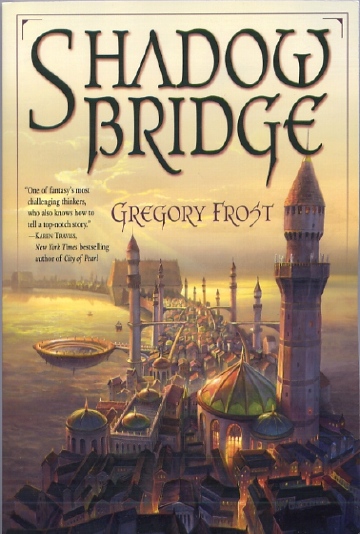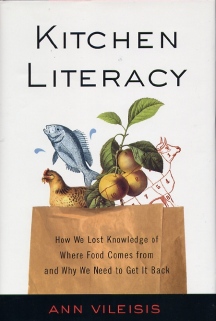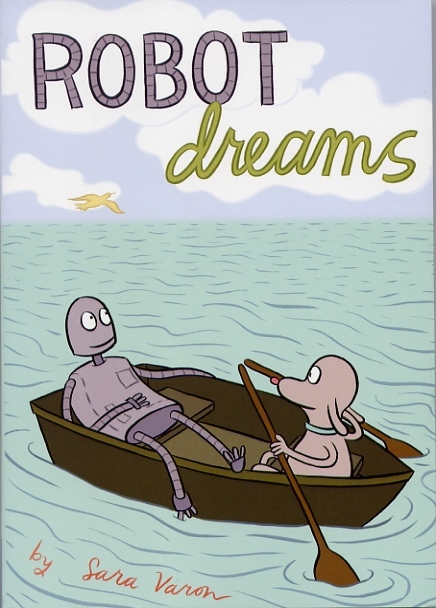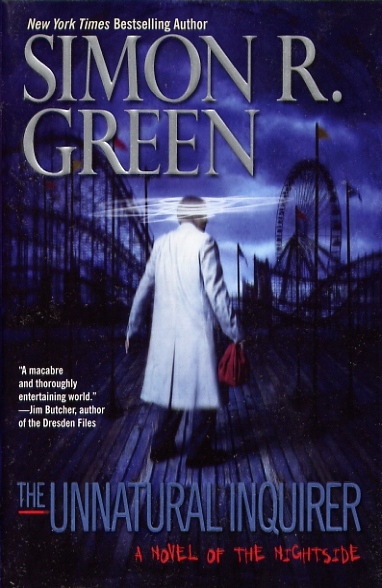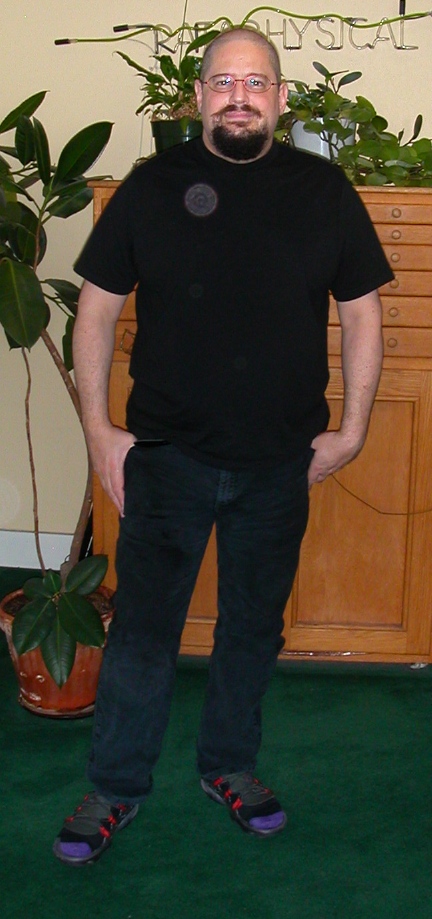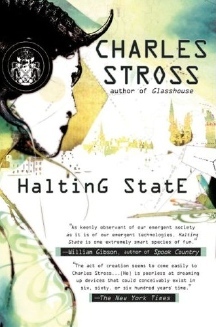|
|
|
|
This Just In...News
From The Agony Column
|
| |
|
01-04-07: Gregory Frost Crosses 'Shadowbridge' ; Agony Column
Podcast News Report : A 2008 Interview With Ann Vileisis [Part 2]
|
Entwining Tales and Nameless Gods
Well, I OFFICIALLY GIVE
UP. Trade paperback, hardcover, what-the-heck ever; if it's readable and
worth reading, I'll read it. Here's a great way
to start your year, and you can get off on the cheap as well, for what
that's worth. I hope readers remember Gregory Frost's 'Attack
of the Jazz Giants', a superb HARDCOVER collection from small-press
giant Golden Gryphon. The gents at Golden Gryphon know a great thing
when they see
one. Gregory Frost, one of our best and most heralded authors of odd
fiction, produced one of the finest single-author collections you could
hope to find on the modern market. You'd think (and be wrong) that the
big-press slippery fantasy novel that followed would show up in hardcover
with a lot of hoo-hah and send-him-to-sign publicity. Still, we are just
as thankful as we can be for 'Shadowbridge' (Del Rey / Ballantine / Random
House ; January 15, 2008 ; $13.95), yet another brick out of the wall
that kept fantasy firmly hemmed in between Tolkien and Tolkien for the
past umpty-ump years. That ol' Generic Celtic Fantasy Trilogy-of-Trilogies
has done gone and bit the dust. There's a new paradigm in the fantasy
genre – the No Paradigm. Frost's new novel, the first of a two-part
series is a perfect example, and damn compact too. It's a bargain any
way you slice it.
The setup is pretty unique. Shadowbridge is a world on a bridge stretched
over trackless seas. The novel begins when Leodora, a shadow-puppeteer
who collects stories and legends has a run-in with the demigod Shumyzin.
He demands a story and Leodora complies. Turns out that Leodora is no run-of-the-mill
tale-teller. No, she's something special, and as is often the case, she's
attracting the right kind and the wrong kind of attention. And the two
won’t stay in balance for very long.
Don't make the mistake of thinking this is a straightforward clump-n-dump
(as in clump from here to there where you dump the treasure and stick your
hand out for the reward) fantasy. Frost is a writer smart and imaginative
enough to carry his literary weight, and 'Shadowbridge' is a great exhibition
of his talents. You'll find musical prose and characters whose actions
have consequences with resonance in our world, even as you inhabit a world
quite unlike our own. You'll also find a finely-honed sense of the surreal
and the supernatural, the mysterious and the monsterific. Frost is simply
a fine writer, writing exactly what he wants. Sure, it's the first half
of a two-book series, with part two to follow this summer. That's not so
long to wait, and it does seem clear that Frost isn’t going to turn
this two-book series in a decades-long waiting game. You read this pup,
you’re going to find you want to finish it, and that there's quite
a bit to chew on in this oh-so-skinny first segment.
I'm going to keep my own whinging about the format to a minimum. I hope
that the desired effect, which I believe to be lots of sales to
new readers, is achieved. I hope that readers are more inclined to "take
a chance" on
this book because it is a) cheap and b) slim. You've got a nice, if sort-of
generic cover by Thomas Thiemeyer and a refreshing lack of hyperbolic blurbs,
though Frost clearly has enough of those stacked up. Are you looking for
something new under the sun? Then Gregory Frost is likely to fill your
needs. Snag a first edition (sigh) trade paperback while you can. When
they go OP, some enterprising small press will likely bless us with a nice
illustrated HC. Ultimately, even physical book lovers like myself will
happily (grudgingly) admit that we read to read, and words are words. It's
the orchestration of the words that matters. The writer and conductor;
in the case Gregory Frost. Musical words well worth your valuable time.
|
Agony Column Podcast News Report : A 2008 Interview With Ann Vileisis [Part
2] : Stories From Food
|
|
Ann
Vileisis in the Berkeley J-School Studio.
|
|
|
Stories
told by the food we eat.
|
My first conversation with Ann
Vileisis was so easygoing and fun that we
really ran out of time before I ran out of questions, or rather comments
about her book.
So I was thrillingly lucky to manage to meet up with her
again, this time at the J-School Studio at UC Berkeley. We talked about
her book 'Kitchen Literacy: How We Lost Knowledge of Where Food Comes from
and Why We Need to Get It Back.'
Her unique view of food history is particularly
compelling in our time of processed corn oil and HFCS. I thought we might
only need a few minutes, but you'll see from this
MP3 file that we chatted
for quite some time and even then, when I stopped, there was more to speak
of, or rather hear from this talented author. If you, say – eat food – then
you might want to give this interview a listen. Lots of food for thought
here; our brains need as much nourishment as do our bodies.
|
| |
|
01-03-08: Sara
Varon Has 'Robot Dreams' ; Agony Column Podcast News Report : A Conversation
With Jeremy Lassen, Best Books of 2007 Part 2
|
A Day, A Year
at the Beach
|
|
Art
whose worth is beyond words. |
I've been following
First Second for quite some time now, and enjoying their work immensely.
But 'Robot Dreams' (First Second ; August 7, 2007 ; $16.95) by Sara
Varon had to come to my attention the old-fashioned way – on
a trip through our rightly-revered independent bookseller, Bookshop
Santa Cruz. It was a beautiful day downtown on Friday, and there on
to of a stack of book in front of their children's was this book with
this remarkably evocative illustration. Simple and sweet but somehow
smart, the cover made me pick up the book. I opened it up to the first
page, started "reading" – there are no words in this
book – and that was that.
Wordless graphic novels are certainly not new to me; I've enjoyed the 'Gon'
books immensely. Books such as these make those of who do read lots of words
realize, however, that story and narrative are not merely the result of words;
they are independent entities. 'Robot Dreams' starts out seeming as if it
will be a simple, sweet idyll; Dog sends away for Robot, builds Robot and
finds he has a friend. But when Dog takes Robot to the beach, Robot goes
swimming. This proves to be a bad idea; Robot ends up immobilized on the
beach and Dog finds himself unable to rescue his new friend. Robot Dreams
of escape and Dog finds himself missing Robot.
You may be tempted to think that such a simple story, told solely by simple
drawings, would itself prove simplistic, but that's absolutely not the case.
Varon's drawings are remarkably evocative and behind the seemingly simple
lay a wealth of complex emotions, plots and explorations of how relationships
work. Told through twelve months, from August to August, this story explores
what it means to be friend and what it means to leave a friend behind. Though
the stories and concepts are easily accessible and comprehensible to the
very young, they retain their power for any reader willing to enjoy the book.
All that is required is that you get it in your hands. That's why it's important
to get yourself out of the house and into your local independent bookseller.
Even though I get a lot of books in the mail, there's nothing quite like
a stroll through the store. Bring someone you love; and if they happen to
be a robot, try to keep them out of the water.
|
Agony Column
Podcast News Report : A Conversation With Jeremy Lassen : Best
Books of 2007
When I started my
conversation with Jeremy Lassen about the best books of 2007 yesterday,
I had some twenty minutes of space left on the SD card, which I considered
more than adequate. But when time ran out, both Jeremy and I had more
to talk about, so here's
the link to the MP3 of part 2 of our conversation on the best books
of 2007.
|
| |
|
01-02-08: Simon R. Green Writes 'The Unnatural Inquirer'
; Agony Column Podcast News Report : A Conversation With Jeremy Lassen
: Best Books of 2007
|
Hardcover At Last!
|
|
| At
last, a well-deserved hardcover for Simon R. Green's Nightside
series. |
How long have I been writing about Simon R. Green's Novels of the Nightside?
A quick check reveals that it's been 4 1/2 years since I first posted
my review of 'Something
from the Nightside'. Now, finally, we have 'The
Unnatural Inquirer' ( Ace / Penguin Putnam ; January 2, 2008 ; $21.95)
in hardcover and I've never been quite as thrilled to dish out my hardly-earned
cash. Supernatural detectives are rather common these days, but to my
mind, Green's John Taylor is one of the best-written paranormal PI's
out there.
Green's latest novel finds John Taylor in the employ of The Unnatural
Inquirer, a Nightside newspaper that's given to headlines like ELVIS
REALLY IS DEAD!
and ANCIENT ONES FAIL TO RISE AGAIN! It seems that the legendary Editor,
Gaylord du Rois, has shelled out some serious samolians for the work of
one Pen Donovan. Donovan claimed to have proof of life after death burned
to a DVD, but he's disappeared. John Taylor, ever the finder, is asked
to do his deal. Of course, what’s found is never quite what's expected.
Then of course, there's always the Aquarius Key. Having nabbed that from
Max Maxwell's ghost, you’d think Taylor's luck would turn, but NO:
something really, really big and Really, Really Bad is after Donovan's
DVD. Or Donovan. Or Taylor, or maybe the entire Nightside. Or perhaps just
all of creation in general. Chances are that Taylor will find that as well,
and chances are as well that he'll not live to regret it.
The appeal of Green's Nightside novel is his ability to combine witty repartee,
well-thought out supernatural menaces, and engaging characters – all
at a lively pace. There's never a dull moment in these books, and there's
never a bit of filler. Green's Nightside novels are quick and yet very
satisfying reading experiences. I find myself consistently impressed by
his ability to conjure scenes of gruesome grandeur. He understands how
to combine beauty and terror, understands that one is the flip side of
the other. He also understands that brevity is the soul of wit. He won’t
waste your time and neither will I. This is his eighth entry in this series;
an omnibus gathers up some of the earlier entries. If you've not read these
book, you're a lucky person. You get to go back to square one and you've
got some appealing reading to catch up on. Best of all, it won't take you
4 1/2 years to read them. In fact, you'll want to pace yourself, and that'll
be tough, because the books themselves are fast paced and you'll find yourself
looking forward to the next before you've finished the first. Unless, of
course, you believe that Elvis isn't dead.
|
Agony Column Podcast News Report : A Conversation With Jeremy Lassen :
Best Books of 2007, Part One
My first conversation
with Jeremy Lassen this week takes a look at some of our favorite
books of 2007. I admit that it's been a while since I've
done the list thing; it just seems too reductive to me. Moreover, the choices
are always impossible. There's a lot out there and I'm lucky enough to
only read stuff I like, for the most part. But I wanted to get Jeremy's
take on the matter, and discuss some of my own most pleasurable reading
experiences of this year. You see, it's not just what you read, but when
you read it, how you feel, where you are; all of these go into the mix.
You
can hear an MP3 file of our conversation here; and should you care
to send me some suggestions or a list of your own favorites, I'd be happy
to see what you enjoyed most – email
me! If I get your email in time,
I'll bring up your suggestions in the second part of my conversation with
Jeremy about the best of 2007 tomorrow. On into a new year of fine reading!
|
| |
|
01-01-08: A 2007 Interview With Charles Stross, Part 2
|
A Dolphin for President
|
|
Wait,
he doesn't look like a dolphin!
|
Today, you
can download the MP3 of the second part of my interview with Charles
Stross. We talk about 'Halting State', Copspace and the politics
of Scotland, an excellent way to start the year. 'Nuff said, enjoy the
interview and I'll be back on the morrow with my sixth year of daily
news, my third year of weekly podcasts and my fifth month of daily podcasts.
Please email me if you have any requests or suggestions, and email
or phone my minders at NPR if you’d like them to broadcast
a weekly show based on this podcast. Thanks again:
We now return you to your scheduled podcast!
|
| |
|
12-31-07: A 2007 Interview With Charles Stross, Part 1
|
"Walking through a Hollywood movie"

|
|
Charles
Stross (l), his novel (r). |
As the year runs
out, it's only appropriate to podcast – in two
parts – my interview with Charles Stross, as we
talked about his novel 'Halting State'. Charlie came down to Santa Cruz
one fine fall
morning, and we spent more than an hour talking about the novel and the
thoughts behind the novel. You
can find the first part here as an MP3;
this is where he talks about the fast-approaching moment in time when
computer games become so photo-realistic that it will be like, as Charlie
says, "walking through a Hollywood movie." Having just watched
my son playing Half Life, I can say that a) yes, the visual content is
getting close to photorealistic and b) the games are every bit as stupid
as a Hollowood movie. So the experience will be like a Hollywood movie,
in all respects, unfortunately; unless they let folks like Stross start
writing them, in which case we can expect more wit and intelligence than
usual. I'd certainly hesitate to predict such a future! [Look in the Audio
Interview Index if you must
have part 2 right now.]
|
|
|

